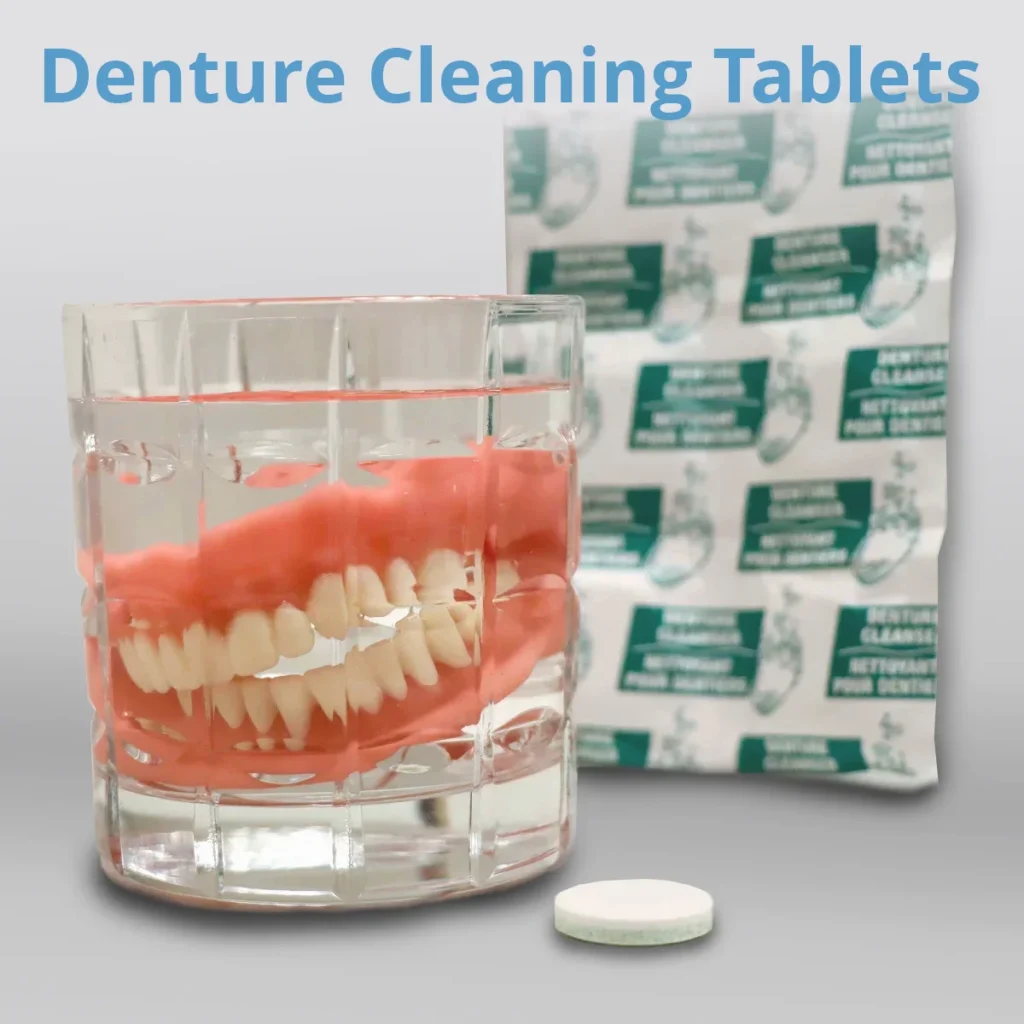Denture tablets have become a popular choice for cleaning dentures, offering a convenient and effective way to remove stains and bacteria. However, it’s crucial to understand that these tablets are not designed for use on real teeth. Using denture tablets on your natural teeth can lead to serious oral health problems. This article will delve into the differences between denture tablets and toothpaste, highlighting the potential dangers of using denture tablets on real teeth and outlining safe oral hygiene practices.
This article will explore the composition of denture tablets and how they differ from toothpaste, examine the specific risks associated with using denture tablets on real teeth, including enamel damage and gum irritation, and provide guidance on maintaining optimal oral hygiene with safe and effective products.
Denture Tablets vs. Real Teeth
Denture tablets are formulated with specific ingredients to address the unique cleaning needs of dentures. These ingredients often include strong cleaning agents, disinfectants, and enzymes that effectively break down plaque and stains on artificial teeth.
Toothpaste, on the other hand, is designed to gently clean and protect natural teeth. It contains milder abrasives, fluoride to strengthen enamel, and other ingredients that promote gum health. The pH level of toothpaste is also carefully balanced to avoid damaging tooth enamel.
Dangers of Using Denture Tablets on Teeth

Using denture tablets on real teeth can be detrimental to your oral health due to their harsh chemical composition. The strong cleaning agents and disinfectants found in denture tablets can strip away the protective enamel layer of your teeth, leaving them vulnerable to decay, sensitivity, and discoloration.
Tooth Enamel Damage
Tooth enamel is the hardest substance in the human body, but it is not invincible. Denture tablets contain abrasive ingredients that can wear down enamel over time, making teeth more susceptible to cavities, sensitivity, and breakage.
Repeated exposure to these harsh chemicals can thin the enamel, exposing the underlying dentin, which is softer and more prone to damage.
Gum Irritation
The strong chemicals in denture tablets can also irritate and inflame gums. Gums are delicate tissues that require gentle care. The harsh ingredients in denture tablets can disrupt the natural balance of bacteria in the mouth, leading to gum disease, bleeding, and discomfort.
Safe Oral Hygiene Practices

Maintaining good oral hygiene is essential for overall health. Here are some safe and effective practices to protect your teeth and gums:
- Brush twice daily with fluoride toothpaste: Use a soft-bristled toothbrush and brush for two minutes each time, covering all surfaces of your teeth.
- Floss daily: Flossing removes plaque and food particles from between teeth, where brushing cannot reach.
- Use mouthwash: An antimicrobial mouthwash can help reduce bacteria and freshen breath.
- Visit your dentist regularly: Schedule professional cleanings and checkups every six months to ensure optimal oral health.
Conclusion
While denture tablets are effective for cleaning dentures, they are not suitable for use on real teeth. Their harsh chemicals can damage tooth enamel, irritate gums, and pose a risk to your overall oral health. Stick to toothpaste and mouthwash formulated for natural teeth to maintain a healthy and beautiful smile. Remember, prioritizing safe and effective oral hygiene practices is essential for long-term dental well-being.



